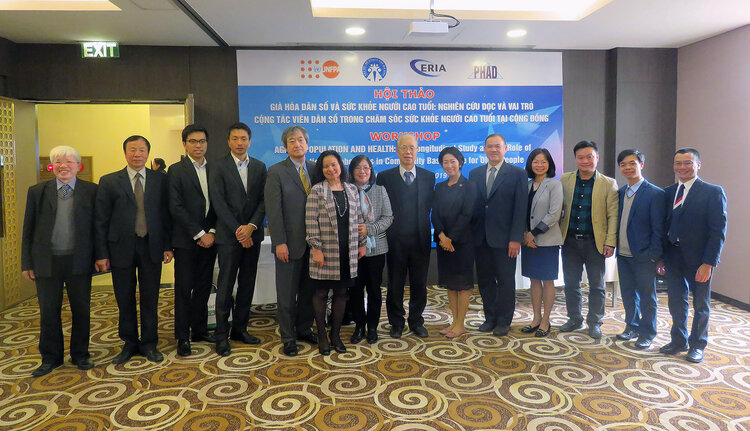The Economic Research Institute for ASEAN and East Asia (ERIA) co-hosted a dissemination event for an AHWIN-related ERIA study, the “Longitudinal Survey of Aging and Health in ASEAN Countries,” which is the first longitudinal study to be conducted targeting older persons in the Philippines and Vietnam. This study was designed to trace individuals who are aged 60 years or over for a period of time in order to investigate the health status and well-being of older persons, and the data obtained will enable researchers to assess the determinants of certain health outcomes and transitions in health status and overall wellbeing of older persons in both countries.
The dissemination forum was held in two locations, with the results of the Philippines study being presented in Manila on December 9, and the results of the Vietnam study presented in Hanoi on December 12. The events at both locations brought together participants from local government agencies, international organizations, universities, and research institutions. Initial results showed a high prevalence of hypertension in both countries, where it was pointed out further that the true prevalence is likely to be higher because of undiagnosed cases among those who are unaware of their health status and those with less access to healthcare. The analyses also showed a gender difference in health status, with older women having a higher proportion of years with disability than men in their remaining lives. The feminization of aging in Asia has important policy implications for countries, indicating a need to scale up efforts to protect the social and psychological wellbeing of older women. Through this event, the need for data related to older persons was emphasized in order to formulate evidence-based policies that can effectively address the issues of aging societies, such as social welfare programs and health insurance systems. A report of the research project is forthcoming.



